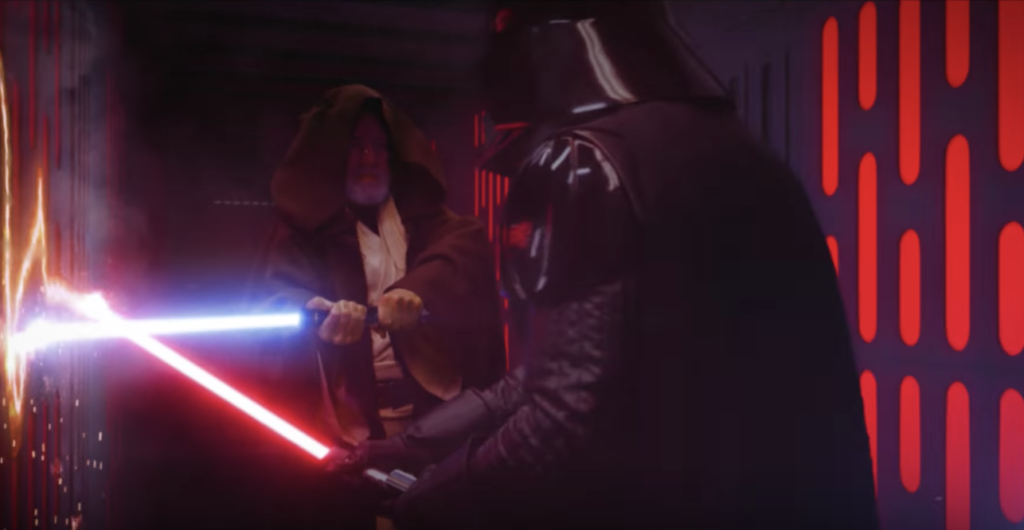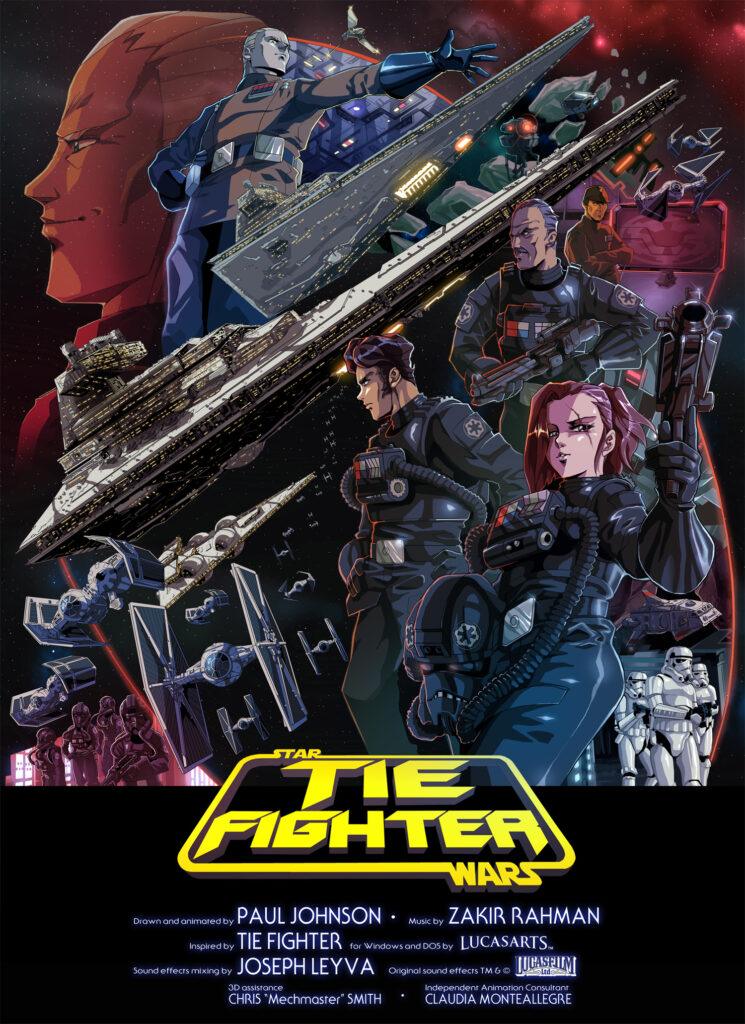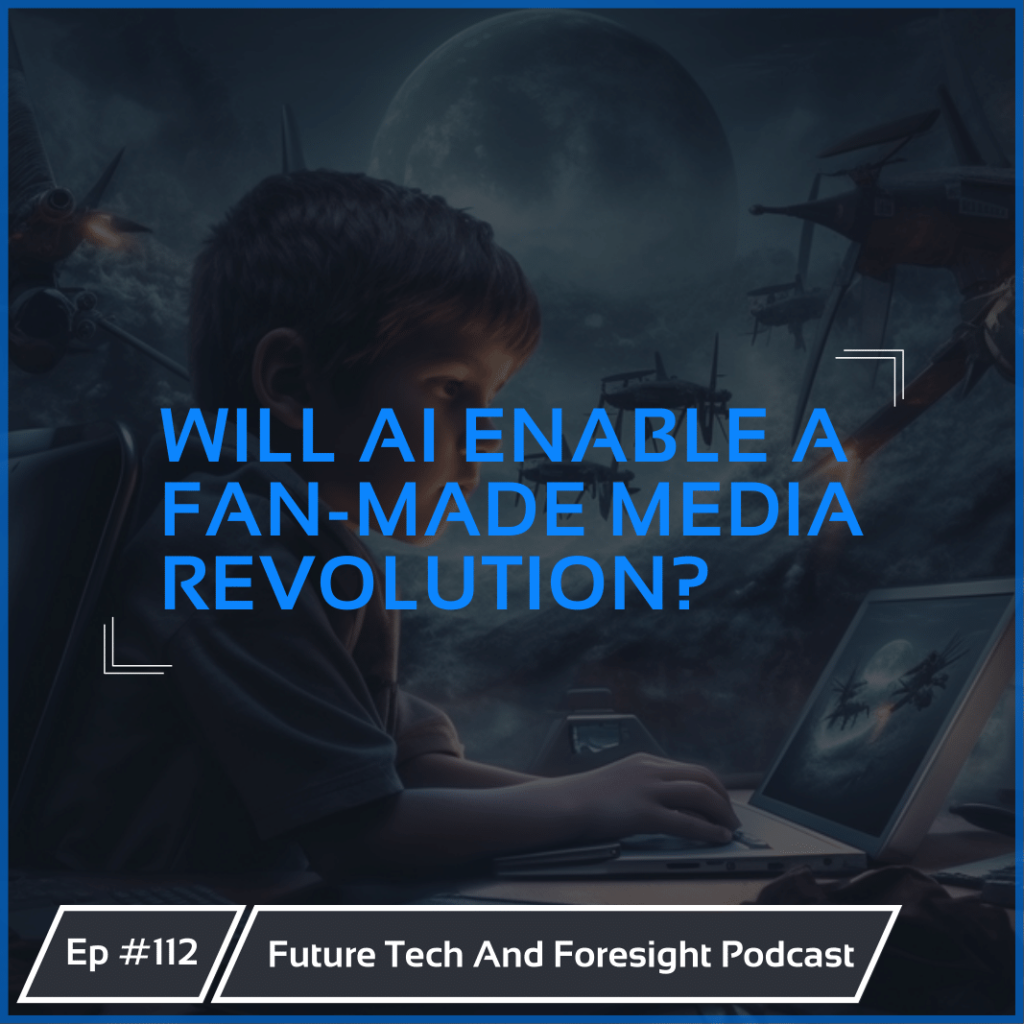This trend of ever cheaper content creation tools has continued, are we are potentially on the brink of a new era where Artificial Intelligence could cause a surge in both the quantity and quality of fan-made content?
TimeCodes:
00:00:32 – Episode Begins
00:03:18 – Runway AI. Is AI generated video possible?
00:05:28 – What will video generation look like in the future?
00:09:01 – Who will be the winners of AI generated video?
00:11:59 – What will be the impact of large scale fan-made media?
00:16:07 – Conclusion
Transcript
Right now, if you’re a fan of a certain non-fiction universe or brand, you pretty much have to rely on big studios and organizations to create your beloved content. They use significant funding to produce movies, TV series, books, and more. However, fans have always found ways to add to their favorite stories, making their own content. Even back when the first Matrix movie came out, online forums were dedicated to generating alternative versions of the story, or continuing the story before the 2nd and 3rd film came out. People were spending hours dreaming up new stories within the world of the matrix. However, as time has moved forward, technology has enabled fans to create higher quality content as the prices of media creation tools has consistently dropped.
And due to this, there have even been notable fan made content consumed by audiences at large scales. Looking at one of the all time most successful franchises, Star Wars, there are several good fan made pieces that have racked up millions of views. Scene 38 reimagined has around 50 million views where a more agile Obi wan Kenobi duels Darth Vader on the death star, or the short animated film Tie fighter, with some 13+ million views follows an empire pilot during and after a space battle. But these are typically the exception and not the rule.


This trend of ever cheaper content creation tools has continued, are we are potentially on the brink of a new era where Artificial Intelligence could cause a surge in both the quantity and quality of fan-made content?
Enter Runway AI
In an interview with Jason Calacanis from the All in podcast, the CEO of Runway explains what his technology can do.
Runway AI is a groundbreaking browser-based tool that includes more than 30 different features, such as instant rotoscoping, motion tracking, audio cleanup, transcription and subtitle creation, exporting alpha mattes, in-painting, text to image, image to image, text to 3D texture, and more. Users can upload their media and utilize these tools to enhance, transform, and create new content. The platform also provides several AI models, including Stable Diffusion, and a text-to-image model. Most interestingly though, is Gen-2, a text-to-video AI model that allows users to create intricate videos from words, images, and their own videos
Just as ChatGPT can spit out an entire essay in less than a minute from a simple prompt, the vision of generative video creation is much the same. Write what you want to see, and the AI will spit out high quality video based on what you wrote. The free trial version is available now too, so if you want to produce a 4s video clip in a few seconds just from text I recommend you to go check it out.
This begs the question of what will Video generation be like in the near future?
Essentially, you’ll be able to use ChatGPT to help you write a story that will be up to date and follow the continuity with whatever IP you are basing it on. Let’s use our Star Wars example, and the massively popular tv show, The Mandalorian. As ChatGPT is now connected to the internet, it is most probably soon going to be ‘aware’ of every aspect of each episode (either by browsing the web and reading text reviews, or through a plugin that enables it to read episode transcripts and Youtube review transcripts, etc). As its training data was cut off at the end of Season 2, I’ve asked it to write out a potential 3rd season. Though limited, if someone really liked this, they could in principle take this, elaborate each episode, and then take that text to Runway and generate videos for each episode. (It’ll take a while before Runway allows you to make videos over a minute, but this is definitely the company’s plan)
The interesting part I think is how other AI applications can be linked to this.
By using a voice generator like Voice.ai, you can generate voice over each of the characters, in the video recording. And by using another AI video editor similar to what GoPro Quick has offered already for numerous years, where an AI algorithm arranges all clips, audio, and text together, you could relatively quickly generate an entirely new, alternative season 3, with the voices sounding like those of the actors in the show.
Of course many of these steps need to be improved currently, but the building blocks are already in place for this to happen. And in the Runway interview, the CEO noted that higher quality videos are expected to be generated within only 2 years! However, it is more than likely that to generate Hollywood quality videos will take significantly longer. But it is not unreal to think that within the next 5 years we will already start to see lower complexity brands, like animated shows (e.g The Simpsons, Rick & Morty, South Park, etc) that will have entire fan-made spin offs that are on par with the official productions.
As I’ve mentioned on the podcast several times before, I recommend everyone to watch the All-In-Podcast, which was the initial motivation for this article. In one section David Friedberg describes the fan-made media winners as those creators that will generate the most dynamic range of interaction with the created piece. Such as allowing you to interact with different characters in a tv show from different perspectives, or have the interactions more detailed based on your personal likes or dislikes. Also the ability to create content as short or as long as people want. A short story can be turned into a movie,10 episode tv show, or even multi-book epic, all depending on what the consumer wants.
I have a different perspective on who the winners will be – I think those that are able to sync their new creations with the official ‘canon’ media of the past, will get the most attention. The reason for this is that we are starting to see a counter-trend to the dominant narrative that has come out of Hollywood the last 10 years or so, of changing, manipulating, and in some scenarios destroying legacy characters and stories (sea cow milk drinking luke for instance). Currently if fans want to get their star wars fix, they only really have one option, to see what Disney produces. If it’s less than desirable, the audience can complain, and write bad reviews, but there are no other new star wars options to view. In the near future. There might be significant competition, and after years of trying to change brands, new fan-made media that is as close and respectable to the vision of the original brand might just win out to everything else, even if it isn’t as personalized or customized as described by David Friedberg.
Impact
As with any new technology that enables new abilities for people, both positive aspects and negative repercussions come about. One that I have talked and written about time and time again is on the nature of jobs.
Very quickly it becomes apparent that VFX studios will see a significant drop in the need for their services. If an AI tool can not only generate actors and landscapes, and scenes, it can also instantly add any effects that these traditional companies have done for years, their value and need will plummet. Think of a company like Pixar that creates films that are entirely animated. This is something that is in the process of being replaced. On the other hand, just as Youtube enabled an entire industry of content creators speaking on a wide range of topics, AI media generation will supercharge artists, amateur directors, and creatives of all kinds to realize their visions for a fraction of the cost than it would be otherwise, and give the opportunity for many to do this work that otherwise would never even have the chance to start.
Hollywood’s business model might drastically change also, just like the music industry underwent massive transformations in the last few decades. Intellectual Property will arguably be more important than ever before. Take into consideration large sales like George Lucas selling Star Wars to Disney for 4 Billion dollars, or George RR Martin selling the rights of Game of Thrones to HBO for 15 million dollars per season. It is much more likely that in the near future, licensing of entire IP’s will be the norm. Where a small subscription can be purchased to use the IP, allowing creators to generate new stories, scenarios, and timelines. Perhaps none will be considered official apart from a select few that pay significant sums, but the more variety means more opportunity to attract people towards a brand.
This transformation isn’t too wild of a thought. For example we’ve seen the music industry implode and the behemoth record labels become less and less important. If the AI video generation era comes to pass, this might be the end of large Hollywood studios as we know them today. Hollywood as whole won’t disappear overnight though. With the advent of streaming services like Spotify, the role of large record labels underwent a substantial shift.
Historically, record labels acted as gatekeepers, controlling every aspect of an artist’s career from recording and manufacturing to distribution and promotion. However, the rise of digital music platforms has democratized the industry, granting artists the autonomy to record and distribute their music independently.
This shift has necessitated record labels to evolve from gatekeepers to service providers. They now offer valuable services, such as playlist pitching, social media marketing, and worldwide promotion – aspects that can be challenging for independent artists to manage. And the same may come to pass for Hollywood, it may turn from gatekeeping and the main form of media creation, to offering valuable services that will come to pass as Runway AI and other AI generation platforms begin to take shape and enable a new era of fan-made media creation.
Conclusion
My assumption is that it will be faster this time round, it still won’t take place overnight, and organizations can plan and implement strategies to take advantage of the coming shift, but for those that don’t it is likely their relevance will evaporate like many record labels of the past music industry. At the end of the day however, the true winners will be all of us who enjoy our specific characters and worlds as we will see them in a near infinite number of scenarios that will hopefully add richness and depth to our favourite stories. The real challenge may be the oversaturation of content and how to choose which fan-made content to watch over another, but it can be argued that is preferable to what we have currently.











